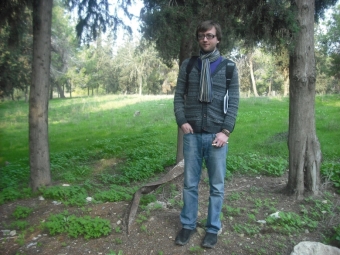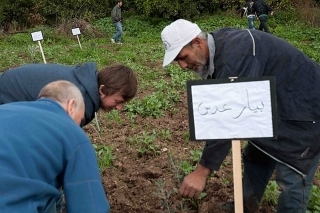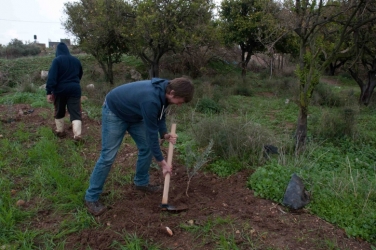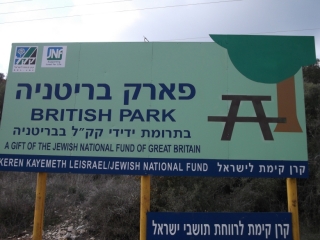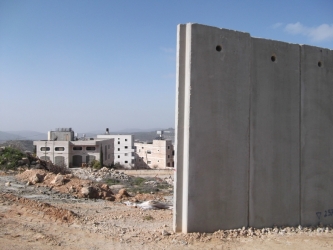Voice’s Old Susannah takes a look over the past week’s events in the ‘Deen and beyond. By Suzanne Kelly.
Bells rang out; glasses clinked as toasts were made; there was dancing and connectivity in the streets (although stolen cars whizzed by). Champagne corks popped dynamically. After many long years, the granite web has been sent to the land of ‘the tooth fairy and unicorns.’ This web has ceased to be. It is an ex-web.
Coincidentally, and I am sure completely without malice, the SNP immediately warned Aberdeen not to count on extra cash from central government. This cash should be coming from increased business rate tax collection (or the tooth fairy – details are hazy).
Nicola Sturgeon apparently still insists that the only way Aberdeen will get any money is to raise our garden to street level, according to a leaked letter.
Whether this garden-raising demand is enshrined in law somehow seems just a touch dubious. But, Sturgeon or no, we are not having a granite web. And that is a result.
No more pictures in newspapers of perfectly groomed flower beds and outdoor stages in front of theatres. No more drawings of steep ramps ascending to great heights, only to descend again for no real reason, free from any safety features, structural supports or architectural rationale. We’ll not see the woman sitting in the green grass growing over the potato-shaped wedge of concrete or the giant floating boy any more.
Skateboarders, graffiti artists, ACSEF members and Sir Ian are thought to be inconsolable. However, with his £50 million soon to arrive to help African charities, the end of the web project isn’t all bad. Every granite web has a silver lining.
Other than that, Old Susannah had a delicious, fun, engaging time at Norwood Hall’s Burns Night Supper. The company was great; the food was special (best haggis, neeps & tatties dish ever), the conversation was genuinely vibrant and dynamic. The man who addressed the haggis did so in great style.
On Friday it will be time to see local improv troupe Wildly Unprepared, which just celebrated its one-year anniversary last week. This week’s show starts at 8pm in The Belmont Cinema.
On Saturday, I’ll probably take my usual jog around the lighthouse in Torry (have to keep fit somehow). Running by the Nigg Golf Club, I get to see golfers out in all sorts of weather – extreme winds, torrential rains, snow, you name it.
I conclude these golfers are very fit people, especially if you compare them to protestors in New York City, which must be a very fragile breed indeed. A one-hour long Manhattan protest was called off this week, as the winds might have reached 20 miles per hour. Safety first I guess. But perhaps there was something more to this protest being halted.
And with that, time for this week’s definitions.
Rent-a-mob (mod. Eng. compound noun) – a group of people who seem to be endlessly attending protest after protest, especially if organised by grass roots leaders.
The above definition from the excellent Urban Dictionary needs to have a second meaning added. This may possibly due to the intervention of Trump organisation supporters. Old Susannah is happy to explain.
Adverts appeared on the intranet; an organisation called Ovation was willing to pay stand-ins, extras, and just random people $20. All you had to do was be in New York City on Wednesday 30 January and stand behind ‘speakers’ at a protest in front of the British Embassy in Manhattan. Of course most people in New York would gladly have spent an hour fighting UK renewable energy for nothing.
Still, this very generous offer from Ovation was I’m sure just a nice way to say ‘thank you’ to New Yorkers for doing their civic duty by telling the UK not to put up wind farms. It must have been a generous act, otherwise to the cynical it might have looked as if someone was trying to manufacture a stage-managed, fake protest for their own personal ends
I wonder who might have wanted to pay people to back up protest speakers in this situation. I suppose we could try and make a wild guess. For openers, whoever put out this open call for a rent-a-mob would have to have some kind of connection both to Manhattan and the UK. Second, they would have to have something against wind turbine energy.
Third, it would have had to be someone with lots of money to rent, – sorry – to reward the would-be protestors. Fourth, it would have had to be someone with something to gain by acting against wind farms being built in the UK. Yes, it will be hard to find anyone fitting this description. I’m totally stumped.
Even sadder still is that this noble paid protest somehow got rumbled. The person who first found the advertisements alerted the ‘Tripping up Trump’ Facebook page (although I can’t imagine why they decided to tell this particular group about it).
The British Consulate and New York media were alerted. The ads which had been in publications such as Craig’s List, suddenly disappeared. But before we could find out who the mystery anti wind farm warrior was, they showed an even more generous side to their nature. The reason given for the protest being called off was that it was going to rain. And, the winds might even have gone up to 20 miles per hour.
It does occur to me that Trump International on the MenieCoast said it would have jet-setting pro golfers and celebrities year round, and a round of golf on this course could take about 2 hours. All I can say is I’m glad Trump golfers will not have to face anything as harsh as rain or 20 mph winds. I wonder if you get your money back if the weather gets that severe and you can’t play golf?
Frost Jacking (mod. Eng. compound noun) the theft of a motor vehicle which the owner is trying to clear of snow and ice before it can be driven.
Never mind any Stig-themed car stealing Facebook Pages; things have moved on and taken a seasonal turn. Frost-jacking seems to be the new fashionable grand theft auto crime. This past week in Belfast, on one morning 9 cars were stolen in 90 minutes.
When the weather is very harsh and cold (even worse than rain and 20 mph wind), people will start their icy cars in the morning to melt the frost and heat the interior. Unfortunately, some of these people haven’t got the memo that there is actually a small bit of car crime going on, so they leave their cars running, getting nice and warm, and they go back into their houses.
Amazingly, some thieves are finding it convenient to steal an unwatched, running, warmed up car. Who would have thought?
Still, I’m sure that crime around the UK is set to take a sharp nosedive, as a new, brilliantly clever police initiative is announced by the ConDems.
Police ‘Direct Entry’ Scheme (UK Government initiative) – a scheme in which highly-ranked foreign police personnel will be allowed to join the UK’s police in senior positions over the promotion of existing UK police personnel.
What could be a better idea than sprucing up UK’s policing than by putting in foreign government police officials in charge? I can’t think of anything that could go wrong there.
Existing police who are hopeful of working their way up the ranks will be delighted to be passed over in favour of police from other countries. Obviously legal, cultural, social, and political bumps may need to be smoothed out. It might take a few days or even a week or two for someone with no experience of policing in the UK to get to grips with our laws, arrest procedures and so on, but let’s give it a go, shall we?
Apparently, this great scheme is going to be the end to all problems, such as that lovely Leveson enquiry had a wee look at, by wiping out corruption. It is going to accomplish this by promoting people much quicker, and getting foreign police supremos to take the top policing jobs here.
According to the BBC, the brains behind this new plan (Police Minister Damian Green) said there was direct entry in other services, including the Army and the prison service. Fair enough – those sectors are in great shape. Green apparently commented:-
“… there is no organisation in the world that cannot get better and it must be the case that if you widen the pool of talent, then you will get even better policing in this country.”
Fantastic. Perhaps they can incorporate some of the USA’s armed response philosophies, or other countries search and seizure policies (search warrants optional), or even some of those extremely effective interrogation techniques found in other countries still.
I believe the law is still on the books in Singapore that vandalism is dealt with by fines, custodial terms and caning (which will split the skin and leave permanent scars). I’m sure high-ranking police there will fit right into how we do things here. Turkey may be in the EU, but there are still a few wee issues such as alleged torture, and arrest of journalists. Oh wait, we’re already doing that here.
Anyway, let’s get some of those police officials here; I’m sure it won’t take them any time to whip our laws into shape and lead our police to better practices. Result!
For some reason or other, Steve White, vice-chairman of the Police Federation, seems to think police need to learn police work through first-hand experience and through progressing through the ranks over time. I hope he overcomes this old-fashioned idea before it gets him in trouble.
So, just when you think the ConDems can’t do any more for us, they surprise you again. Thanks guys.
Next week: more definitions, more news, and the latest crime fads revealed.
- Comments enabled – see comments box below. Note, all comments will be moderated.



